[Updated Oct. 5. 2022]
Breast cancer is the most common cancer among American women (besides skin cancer.)
I used to think that family history or genetic predisposition are the main causes of breast cancer. After all, that is what we hear about in the media most often.
But I was wrong. Way wrong.
Only about 2.5% of breast cancer cases are from hereditary factors.
The biggest cause of breast cancer growth is diet and lifestyle.
This is good news! It means there is much we can do to prevent this much feared form of cancer.
I’m going to share with the foods that have been proven by scientific studies to contribute to cancer growth.
I’ll also share the foods and lifestyle factors that have been shown to help you prevent it.
Your Breast Cancer Started 40 Years Ago
By the time a woman detects a cancerous lump in the breast, it has probably been present for forty years or longer.
Even mammograms don’t detect cancer early. They detect it late. Over the years the cancer has been growing, maturing and outmaneuvering the immune system.
How do we know this?
Because when they autopsy women in their 40s that have died from other causes, 39% of them have breast cancers too small to be detected by mammograms.
We can’t wait for a mammogram or lump to tell us we have cancer.
We need to be proactive. Choosing a diet and lifestyle that inhibits cancer growth means these tumors don’t get the chance to grow to a size where they become a threat.
Foods that Promote Breast Cancer
First, we’ll cover the “culprit” foods. The foods that fuel cancer cells and give them the perfect environment to proliferate.
Heterocyclic Amines in Cooked Meat
Heterocyclic amines (HCAs) are formed when muscle meat (beef, pork, fish, and poultry) are cooked at high temperatures. This includes roasting, frying, grilling and baking at the moderate temperature of 350 degrees. HCAs are also found in fried eggs and cigarette smoke.
HCAs damage DNA. Damaged DNA can mutate into a cancer cell. HCAs both initiate and promote cancer growth.
As shown in the Long Island Breast Cancer Study Project, women that eat more grilled, barbequed and smoked meat over their lifetime may have as much as 47% increased breast cancer risk.
One of the HCAs, called PhIP, fuels breast cancer growth nearly as much as pure estrogen. It initiates cancers and helps them grow and spread.
Eliminate the meat from your diet and your PhIP levels drop to zero in just 24 hours.
If you are motivated to reduce your risk of breast cancer, consider eliminating or at least dramatically reducing your meat intake. (Plant-based nutrition experts recommend limiting animal protein to 10% or less of overall calories.)
Download my free Whole Food, Plant-Based Diet and Lifestyle Action Guide.
Cholesterol and Statins and Breast Cancer
Eliminating meat and eggs will also greatly reduce your dietary cholesterol.
Cholesterol feeds cancer cells. They love it and greedily grab circulating cholesterol and use it for fuel.
Statins aren’t the answer. Women taking statins for 10 years or more double their risk of breast cancer – both ductal and lobular.
Since the number one killer of women in the US today is heart disease, it’s important to get those numbers in check. Doing it with diet instead of statins will further protect you from breast cancer.
Alcohol and Breast Cancer
I wish I had good news for you.
According to the policy brief published by the World Heart Federation, “Even a small amount of alcohol has been linked with an increase in risk of breast cancer.”
There is no safe amount of alcohol. If you don’t drink alcohol, they recommend that you not start as there are NO health benefits. And if you do consume alcohol they encourage you to reduce your consumption.
(So sorry!)
Low Melatonin
Researchers believe that melatonin helps suppress cancer growth.
Melatonin production is interrupted when you work the night shift, sleep with the light on, or live in an area brightly lit at night.
Eating meat also lowers melatonin production. Eliminating meat may not only help reduce your cancer risk, it may help you sleep better.
Breast-Cancer Protective Foods
Now that we’ve covered what NOT to eat, let’s cover what you should include in your diet and lifestyle to further reduce your risk of breast cancer.
Whole Soy Foods Fight Breast Cancer
Human studies show that whole soy foods, like soy milk and tofu, fight cancer rather than feed it.
I have previously written about how the soy-breast-cancer-scare started, and shared the facts on soy.
So I’ll just touch on it here.
In the 5 studies on breast cancer survivors, those that ate the most soy lived much longer and had a greatly reduced percentage of cancer recurrence.
A single cup of soy milk a day may reduce the risk of breast cancer returning by as much as 25 percent.
Women with a genetic risk of breast cancer may especially benefit from consuming soy foods.
The isoflavones in soy reactivate BRCA genes. (These genes perform DNA repair. Mutations in this gene can cause greater breast cancer risk.)
Soy may also help women with MDM2 and CYP1B1 breast cancer susceptibility genes.
Ground Flaxseeds for Breast Cancer Prevention
Flaxseeds have about 100x the lignans in other foods. Lignans are phytoestrogens that turn down the effects of estrogen.
Studies show that flax lignan intake is associated with reduced breast cancer rates in women.
Eating the equivalent of just 2 teaspoons of ground flaxseeds a day reduces precancerous changes in breast tissue, decreases cancer cell proliferation and makes it less aggressive.
Cruciferous Vegetables
Cruciferous vegetables (such as cauliflower, cabbage, garden cress, bok choy, broccoli, broccoli sprouts, Brussels sprouts and kale) contain sulforaphane which suppresses breast cancer stem cell’s ability to grow into tumors.
Try to eat a serving of this vegetable family every day.
Apples Fight Cancer
Could a food as readily available and tasty as an apple help fight breast cancer?
You bet. Apple’s cancer fighting power is found in the peel.
Apple peels contain a phytochemical that reactivates a tumor-suppressor gene that gets turned off by breast cancer cells.
Apple peels also contain powerful antioxidants. People that eat an apple a day have 24% lower rates of breast cancer compared to those that eat apples less than one a day.
The apple flavonoid phloretin has been shown to reduce the growth and migration of triple negative breast cancer cells.
Eating or juicing a delicious organic apple is easy!
Mushrooms
In a study of 1000 healthy Chinese women, those averaging just ½ a mushroom a day had a 64% reduced risk of breast cancer compared to women that did not eat mushrooms. Add a cup of green tea to that and there was a whopping 90 percent reduction in breast cancer risk.
Mushrooms make a great meat replacement. Put them in salads. Saute them and enjoy with greens or other meals.
Vigorous Exercise
I mentioned that there are lifestyle factors that contribute to breast cancer risk reduction. NOT smoking is a big one. The other is vigorous exercise (a fast walk won’t cut it.)
Studies show that you can lower your circulating estrogen levels by 20% if you do aerobic exercise 5 hours a week.
The Big Conclusion
With so many ways to lower your breast cancer risk, what should you focus on?
In a study of 30,000 post-menopausal women over 7 years, those that limited their alcohol, ate mostly plant-based, and maintained a normal body weight reduced their risk of breast cancer by 62 percent!
If you’re motivated to eat more plant-based, but aren’t sure how to start, download my free Whole Food, Plant-Based Diet and Lifestyle Action Guide.
If you’re over 40, there’s a good chance there is already cancer developing somewhere in your body. Knowing this, you can make food and lifestyle choices that make the cancer cells’ environment unfavorable for growth.
You may never have to hear “You have breast cancer.”
Empowering indeed.
Source: How Not to Die, by Michael Greger, MD.

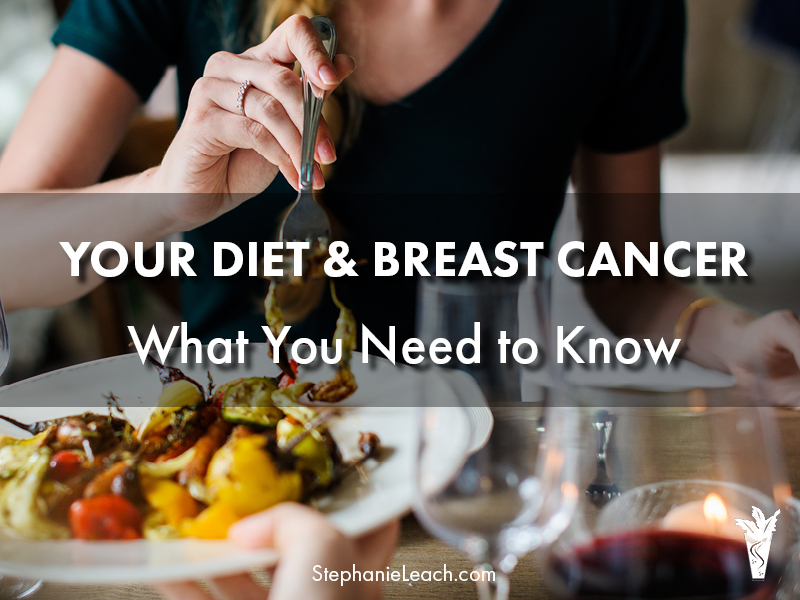


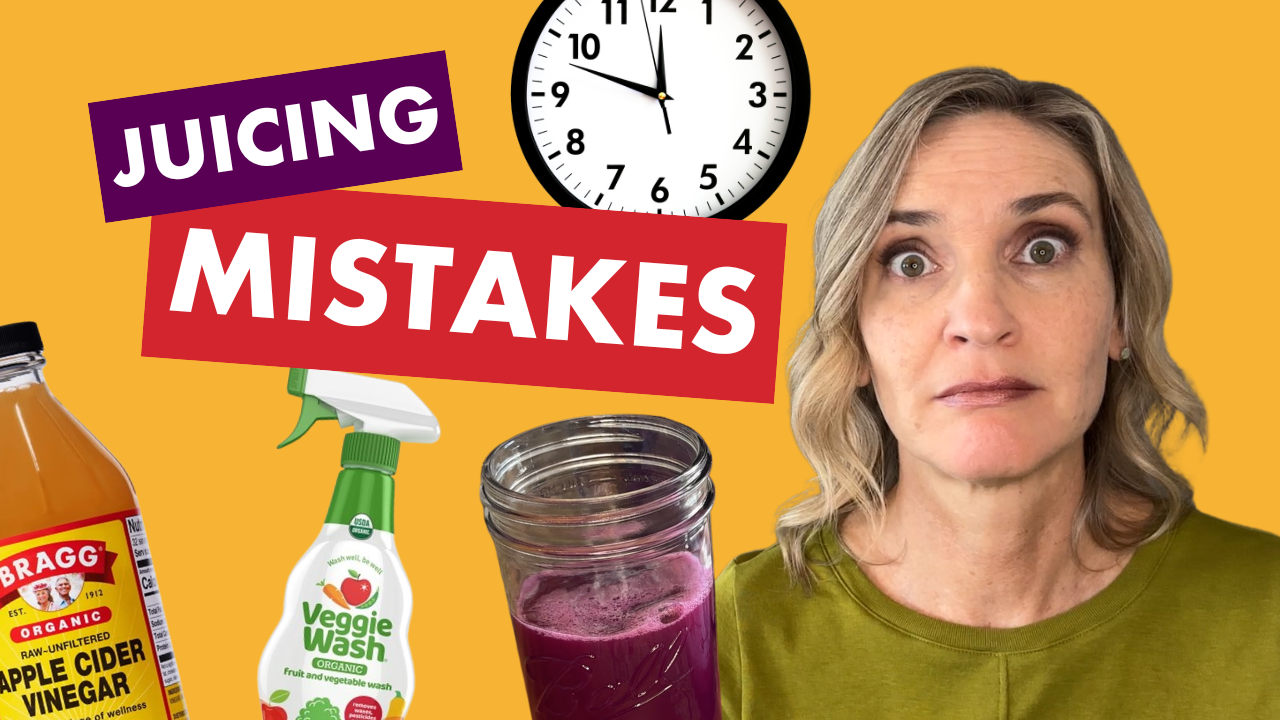
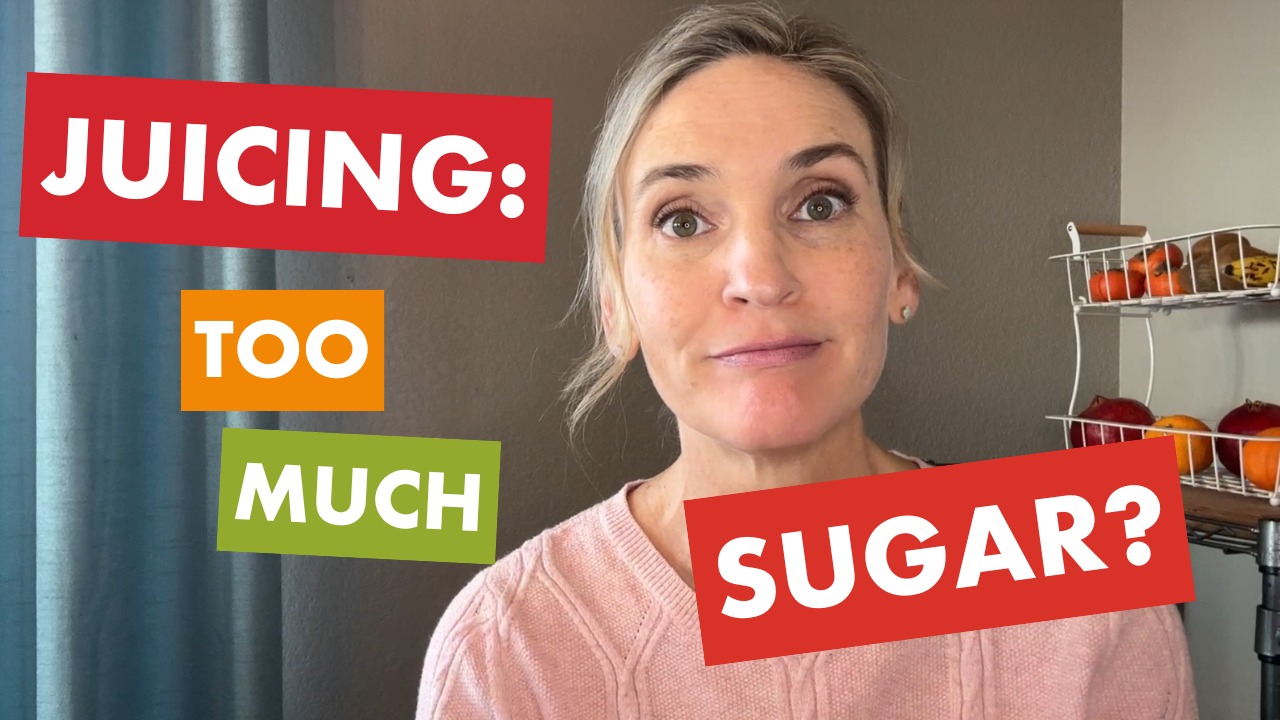
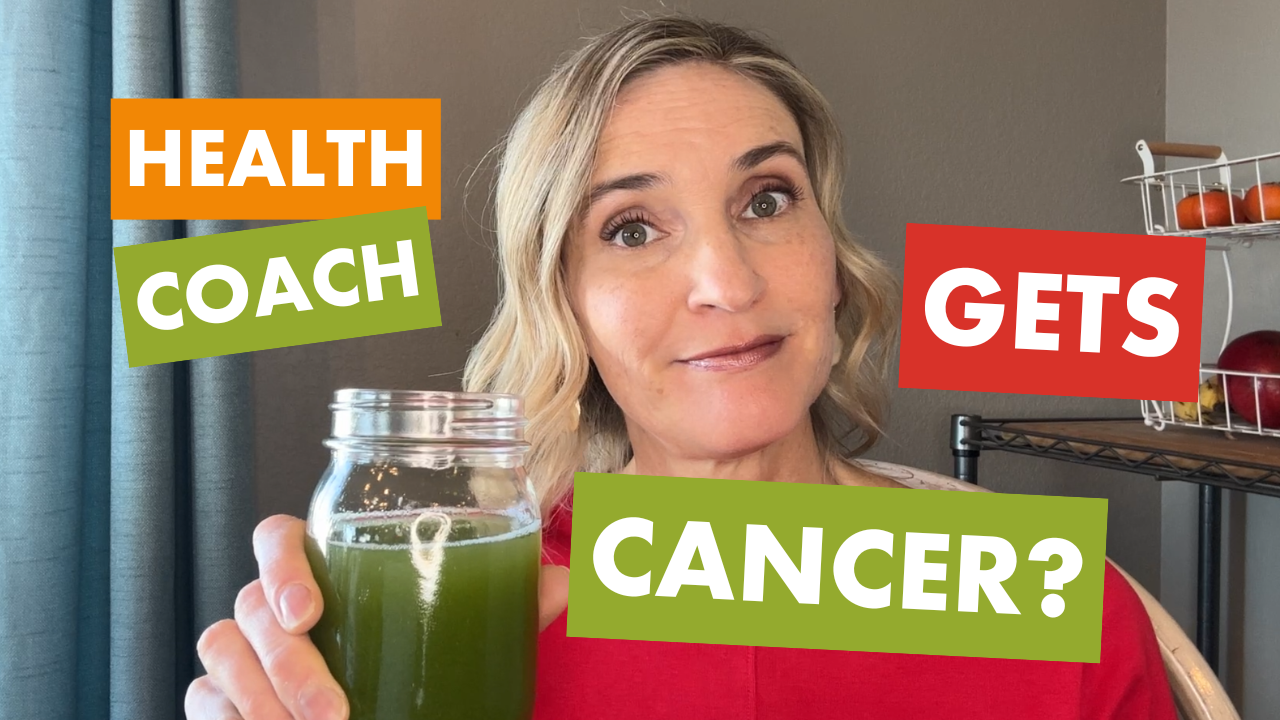
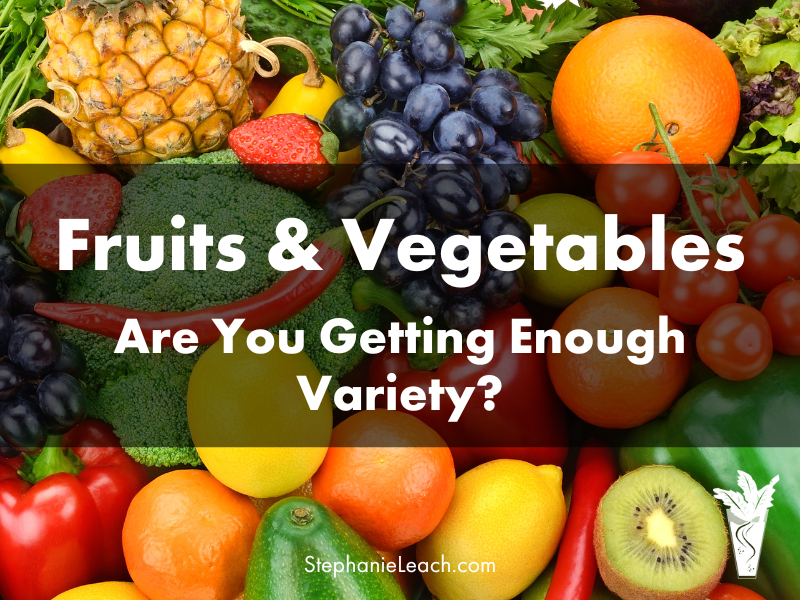
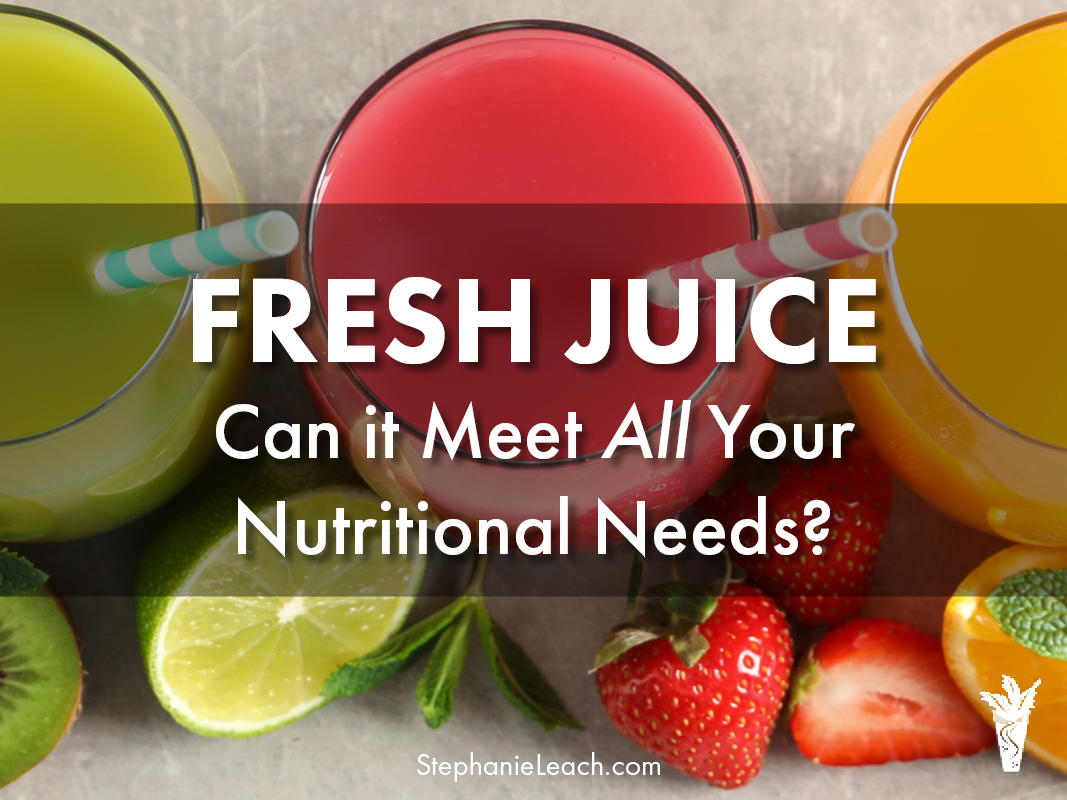
Leave A Comment